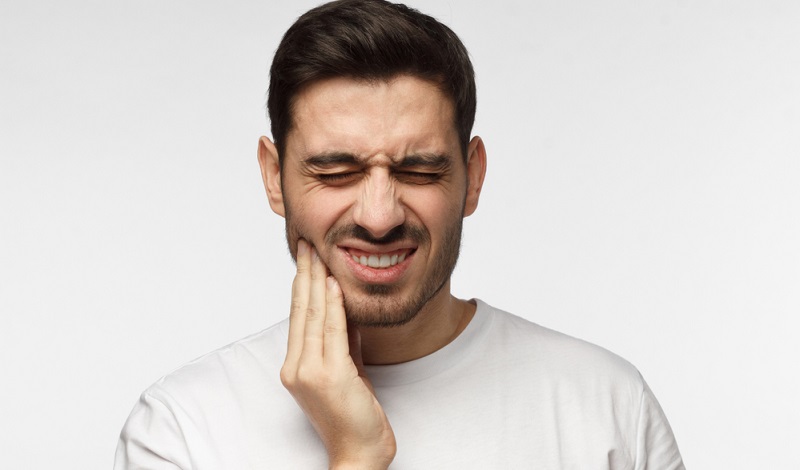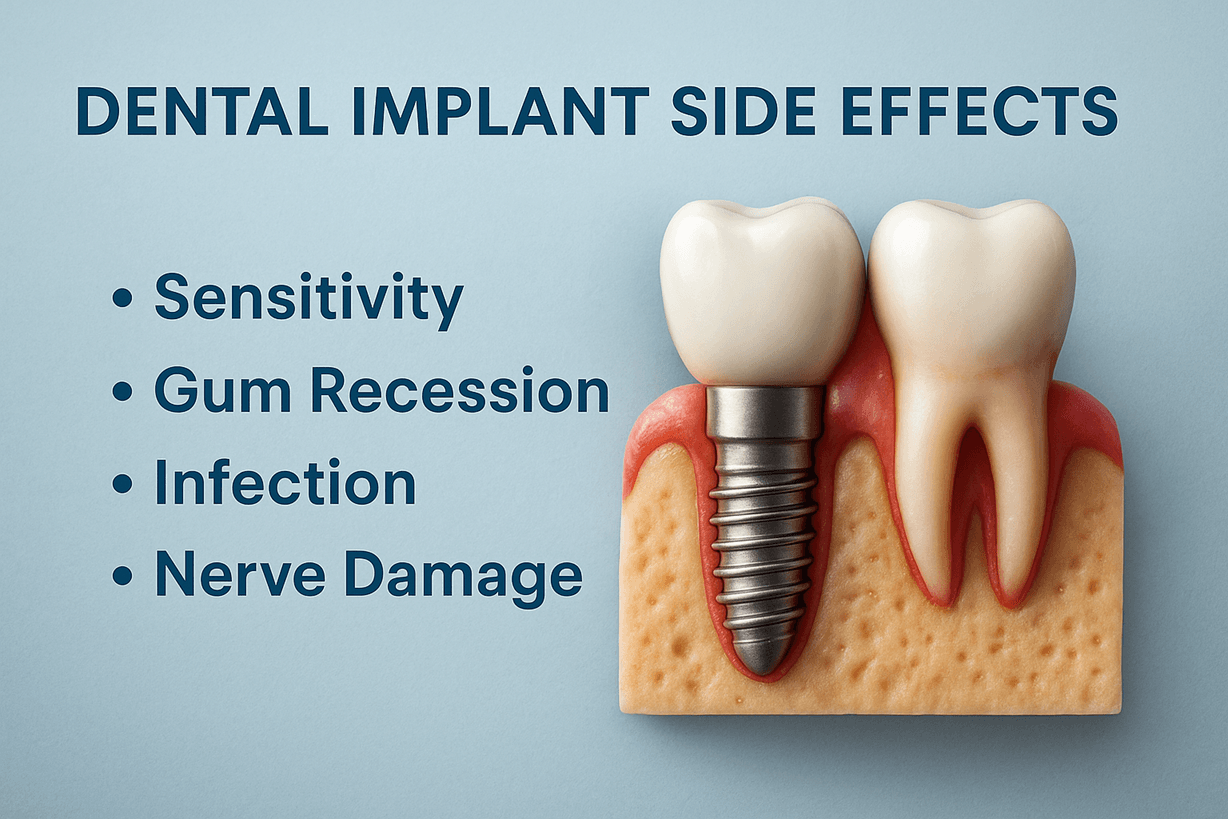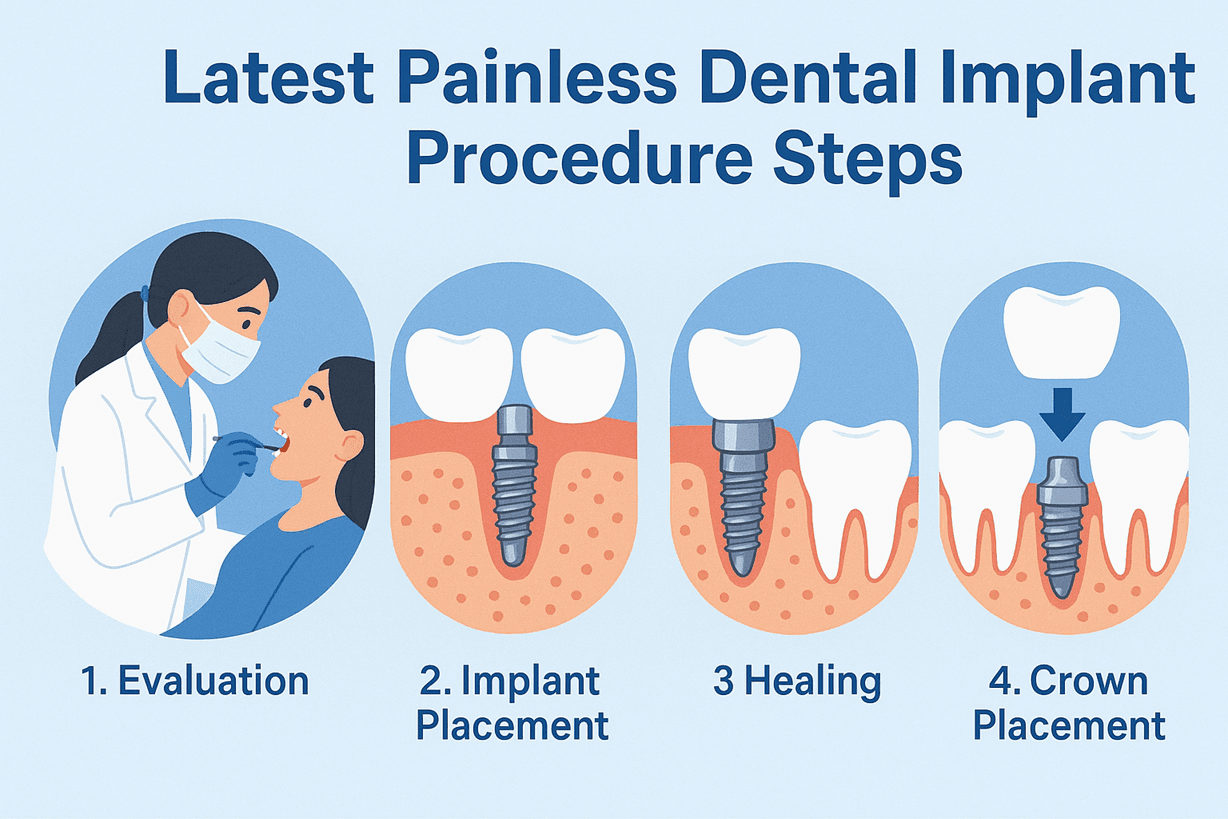Contents
Are you dealing with wisdom tooth pain? If so, you’re not alone. Millions of people around the world suffer from wisdom teeth removal pain every year.
Fortunately, some natural and over-the-counter remedies can provide temporary relief from the discomfort associated with impacted or erupting wisdom teeth.

In this blog post, we discuss the different types of solutions available including essential oils, herbal remedies, dietary changes, and supplements as well as professional treatments if necessary.
So if you’re looking for methods to reduce the pain after wisdom teeth removal without resorting to expensive dental procedures or medications then read on for more information!
How to Get Rid of Wisdom Teeth Removal Pain?
Wisdom teeth can cause significant pain if they are impacted or don't erupt properly. Here are some natural ways to relieve the discomfort:
1. Cold Compresses
Apply a cold compress or ice pack to reduce swelling and numb the area. Use for 15-20 minutes with breaks.
2. Over-the-Counter Pain Relievers
Take ibuprofen or acetaminophen to reduce pain and inflammation. Follow the recommended dosage.
3. Salt Water Rinses
Rinse with warm salt water to cleanse the mouth and soothe the gums. Do this several times daily.
4. Good Oral Hygiene
Brush and floss regularly to keep bacteria levels low and prevent infections, especially around the wisdom teeth.
5. Stay Hydrated and Eat Soft Foods
Drink water and consume soft foods to avoid irritating the affected area.
6. Consult a Dentist When Needed
If pain persists or worsens, consult a dentist to rule out infections or other complications.
7. Regular Dental Check-Ups
Regular check-ups can help detect potential issues with wisdom teeth early on.
Understanding the Causes of Wisdom Tooth Pain
Wisdom tooth pain can be an uncomfortable and painful experience. It is a common problem that affects the majority of people, especially those between the ages of 17 and 25. Understanding the causes of wisdom tooth pain can help to prevent it from occurring or becoming more severe.
The most common cause is impacted wisdom teeth, which means that there isn’t enough room in the jaw for them to emerge properly.
When this happens, pressure builds up around the area and causes pain as well as swelling, redness, and tenderness in the gums near where they are emerging.
Other possible causes include infection or damage to surrounding teeth due to misalignment of wisdom teeth, food particles getting trapped around the affected area, or gum disease caused by poor oral hygiene.
In order to understand how best to deal with wisdom tooth pain, it is important to first identify its cause.
If you experience any symptoms of discomfort and suspect that your wisdom teeth may be growing in incorrectly or causing damage to other teeth then you should visit your dentist for a professional opinion.
Your dentist will likely recommend x-rays and possibly an MRI scan so they can determine what type of treatment is necessary for your particular situation; if impacted wisdom teeth are indeed present then extraction may be required to alleviate any further discomfort.
In some cases, however, simpler solutions such as orthodontic braces can help realign misaligned teeth so they don’t press against one another and cause further irritation.
It is also important when dealing with a
wisdom tooth pain that you practice good oral hygiene habits daily; brushing twice a day using fluoride toothpaste along with regular flossing will help keep bacteria away from developing around affected areas while helping reduce inflammation in swollen gums due to impacted wisdom teeth growth.
Additionally, if food particles do manage to get stuck it is important not to use sharp objects such as pins or needles to remove them as this could potentially lead to infection – instead, rinse gently with a solution of warm salt water several times per day for relief from any associated symptoms including tenderness or soreness near where these molars are emerging from beneath the gums line.
By understanding all potential causes of wisdom tooth pain and following proper instructions from your dentist you can prevent future problems arising related specifically to this issue.
What are the Home Remedies for Wisdom Teeth Pain Relief?
Home remedies are one of the most effective ways to treat any sort of inflammation and pain without the help of expensive complicated medical procedures.
One of the most common is wisdom tooth pain, which affects many adults who are in their late teens and early twenties.
Home remedies can provide relief from wisdom tooth pain without the need for over-the-counter medications or expensive dental procedures.
Here we discuss 10 home remedies for wisdom teeth removal pain relief:
- One method of relieving yourself from wisdom teeth removal pain is by using over-the-counter medications such as Ibuprofen. you can also use a drug called acetaminophen. Although these may be your options to relieve wisdom teeth removal pain, they could cost you a lot. Whereas home remedies require only items you already have in your kitchen cupboard or refrigerator like garlic, salt water, and tea bags. Plus, you don’t have to pay for costly trips to the dentist if you can manage your symptoms with simple solutions found around your house.
- Another way to reduce wisdom teeth pain is by using turmeric which is a natural antiseptic. Turmeric has anti-inflammatory properties that help reduce swelling associated with wisdom teeth extraction or other issues related to impacted teeth.
- One more ingredient that you will find in your kitchen that will also help relieve wisdom teeth pain is garlic. For instance, garlic can be crushed into a paste and applied directly on the affected area while turmeric powder mixed with warm water can also help reduce swelling and ease discomfort caused by inflamed gums or tissue around the affected area.
- Natural ingredients like clove oil act as a local anaesthetic providing temporary relief from throbbing pain associated with impacted teeth or gingivitis due to its numbing effect on nerve endings.
- Honey has been known to fight off bacteria that cause infection thanks to its natural antiseptic properties making it ideal for treating infections related to impacted teeth that cause oral discomfort.
- Essential oils have been used for centuries in traditional medicine to treat a myriad of ailments, including wisdom tooth pain. Essential oils are highly concentrated extracts of plants and herbs that contain volatile compounds that can help reduce inflammation and pain when applied directly to the affected area or ingested orally. They are known to have potent antimicrobial and analgesic properties, making them an effective alternative treatment option for wisdom tooth pain.
- Lavender Oil has calming properties that help relieve tension headaches associated with wisdom teeth; Peppermint Oil is excellent at reducing inflammation due to its cooling effect on the skin tissue surrounding the affected area. Remember whenever you are deploying the use of essential oils to treat wisdom teeth removal pain you must dilute them with a carrier oil like coconut oil, jojoba oil, or even mustard oil before directly applying them on the affected area.
- Another popular choice for reducing wisdom teeth pain is herbal remedies or therapies. One of them is camomile tea, a tea that is popularly known as a bedtime tea. this tea is known for its soothing effects on the digestive system and it also contains compounds that can reduce inflammation in the amount and gums. this is also used by women during the menstrual cycle as it helps them reduce the cramps and pain as well as helps in getting better sleep.
- Sage is another remedy that is used in reducing wisdom teeth removal pain. this particular herb has flavonoids that have anti-inflammatory properties when applied topically or consumed.
- Liquorice root extract is also known to reduce gum swelling associated with erupting or impacted wisdom teeth as it helps decrease inflammation in the mouth while providing relief from soreness caused by dental work such as fillings or extractions.
Maintaining Good Oral Hygiene to Manage Your Wisdom Teeth Symptoms
- Good oral hygiene is essential for maintaining healthy teeth, gums, and wisdom teeth. It helps prevent tooth decay, gum disease, and other dental problems associated with the eruption of impacted wisdom teeth.
- Maintaining good oral hygiene is one of the best ways to manage your wisdom teeth symptoms and keep them under control.
- Brushing your teeth twice a day with fluoride-containing toothpaste should be part of your daily routine when it comes to caring for your wisdom teeth.
- Make sure to use an interdental brush or floss daily to remove plaque from hard-to-reach places between the back molars.
- Cleaning between your teeth can help reduce inflammation around the erupting wisdom tooth as well as prevent food particles from being trapped there and leading to infection or decay.
- In addition, using a mouthwash containing an antibacterial agent can help reduce bacteria levels in the mouth which can lead to gum disease, bad breath, and further complications around the erupting wisdom tooth site.
- Moreover, regular visits with a dentist are recommended to keep on top of any issues that may arise due to impacted or partially erupted wisdom teeth.
- With proper care, you can ensure that any symptoms related to your wisdom teeth are minimized and managed effectively over time.
Finding Professional Treatment if Home Remedies Don't Work
Finding professional treatment if home remedies don't work is an important step for many people who have been dealing with physical or mental health issues.
In some cases, home remedies may provide temporary relief but not long-term solutions. Professional care can be the best way to get lasting results and enjoy improved well-being in the long run.
When looking for professional help, it’s important to choose a practitioner or provider who you feel comfortable with and trust.
Consider their credentials and qualifications, as well as any referrals from friends or family members who have had positive experiences with them in the past.
Do your research online to learn more about their approach and read reviews from other patients when possible.
During your first appointment, it’s important, to be honest about what has been happening so far and any symptoms you’ve experienced that could indicate a need for further help.
Your practitioner should provide an accurate diagnosis before suggesting any treatments so that you understand why they are being recommended at each stage of your journey toward recovery.
With the right professional support, anyone can find lasting relief from their condition without having to rely on home remedies alone.
Conclusion
Dealing with wisdom tooth pain can be a difficult and uncomfortable experience. Fortunately, there are natural and over-the-counter remedies that can provide temporary relief from associated symptoms including essential oils, herbal remedies, dietary changes and supplements as well as professional treatments if necessary.
Additionally, maintaining good oral hygiene habits such as brushing twice daily and flossing regularly can help to keep your mouth healthy and free from painful symptoms related to wisdom teeth in the long run.
Ultimately, by understanding all potential causes of wisdom tooth pain and utilizing the available solutions you should be able to get back on the path towards improved oral health quickly and effectively.



